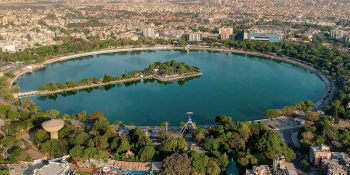Traveling to a foreign country can be exhilarating, but it also presents challenges, especially when you don’t speak the local language. However, with some preparation and creativity, you can overcome these language barriers and still have a fulfilling travel experience.
Firstly, arm yourself with basic phrases in the local language such as greetings, please, thank you, and how to ask for directions. These simple phrases show respect for the local culture and can go a long way in establishing rapport with locals.
Additionally, utilize technology to your advantage. Translation apps like Google Translate can help bridge communication gaps in real-time, allowing you to have basic conversations or understand signs and menus. Offline translation features can be particularly useful in areas with limited internet connectivity.
Non-verbal communication is another powerful tool. Learn to read body language and use gestures to convey meaning. Pointing, nodding, and smiling are universally understood gestures that can facilitate interactions even when words fail.
Engage with locals in activities that transcend language barriers, such as cooking classes, art workshops, or guided tours. Shared experiences can create bonds that transcend language, allowing you to connect with people on a deeper level.
Furthermore, don’t hesitate to seek help when needed. Hotels, tourist information centers, and fellow travelers can often provide assistance or act as interpreters in tricky situations.
Lastly, maintain a positive attitude and a sense of humor. Language barriers may lead to misunderstandings or awkward moments, but approaching these situations with patience and a smile can turn them into memorable anecdotes.
In conclusion, while traveling without speaking the local language may pose challenges, it’s entirely possible to navigate unfamiliar territories with resourcefulness, technology, and a willingness to connect with people in different ways. By embracing the adventure and embracing the diversity of human communication, you can turn language barriers into opportunities for cultural exchange and personal growth.









